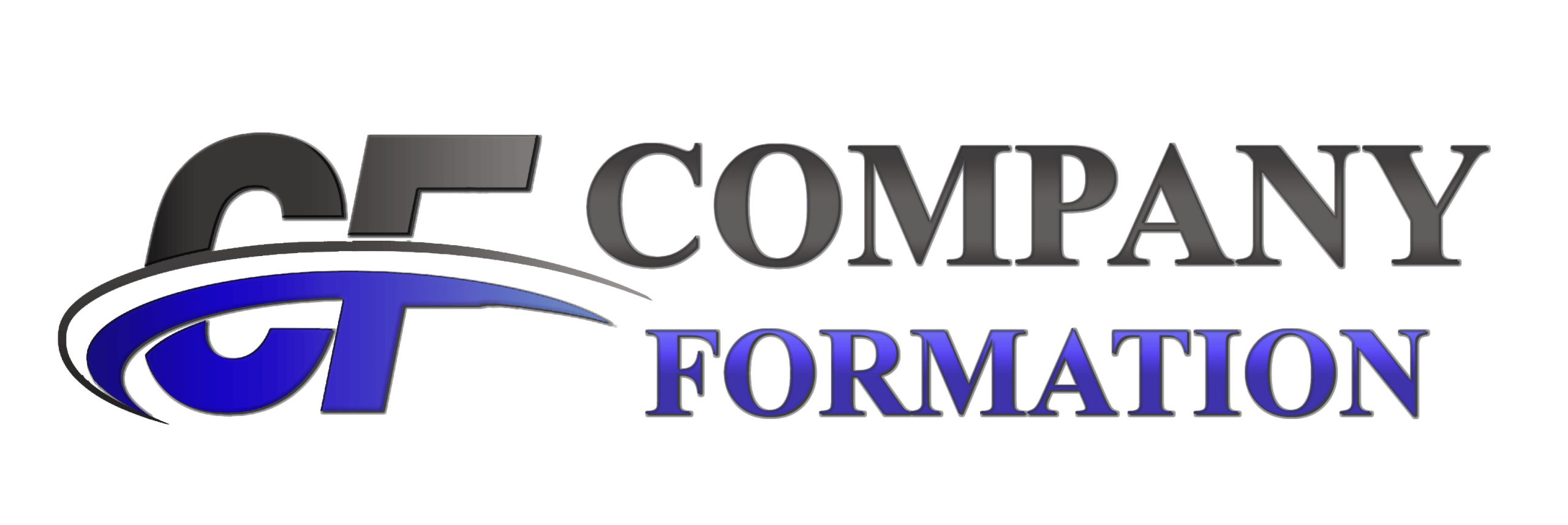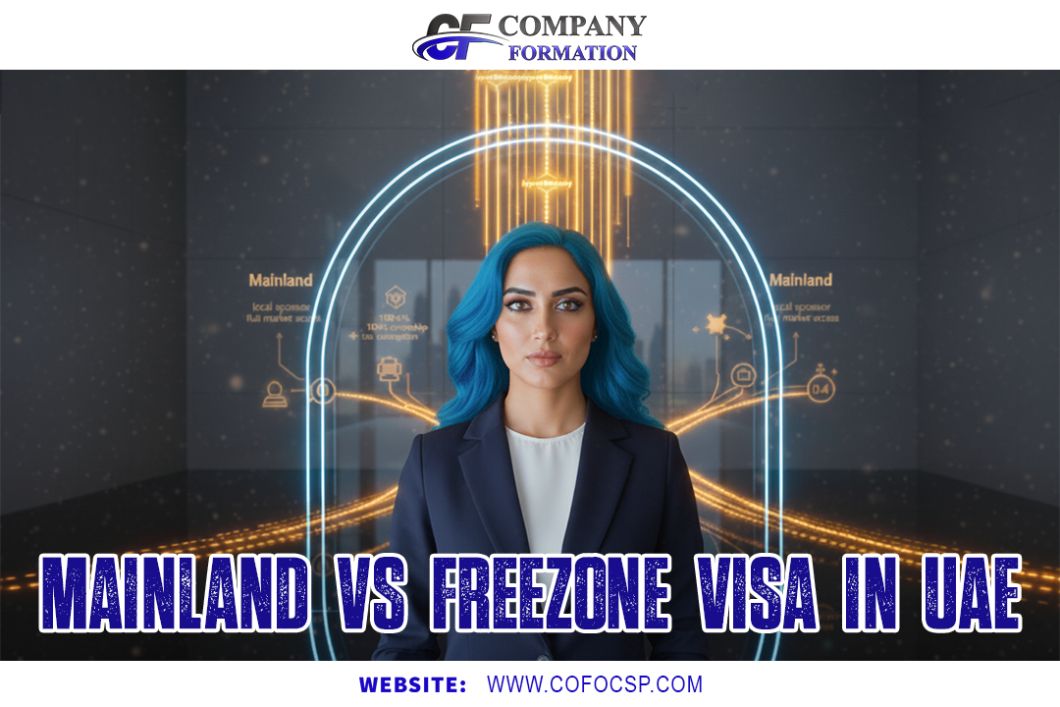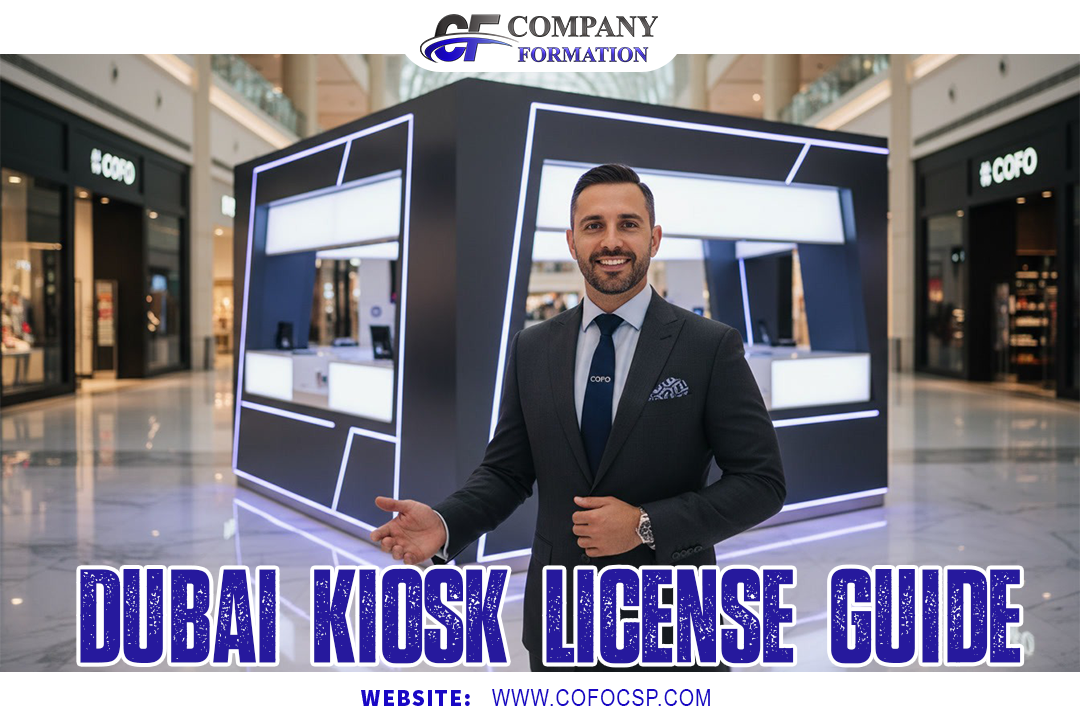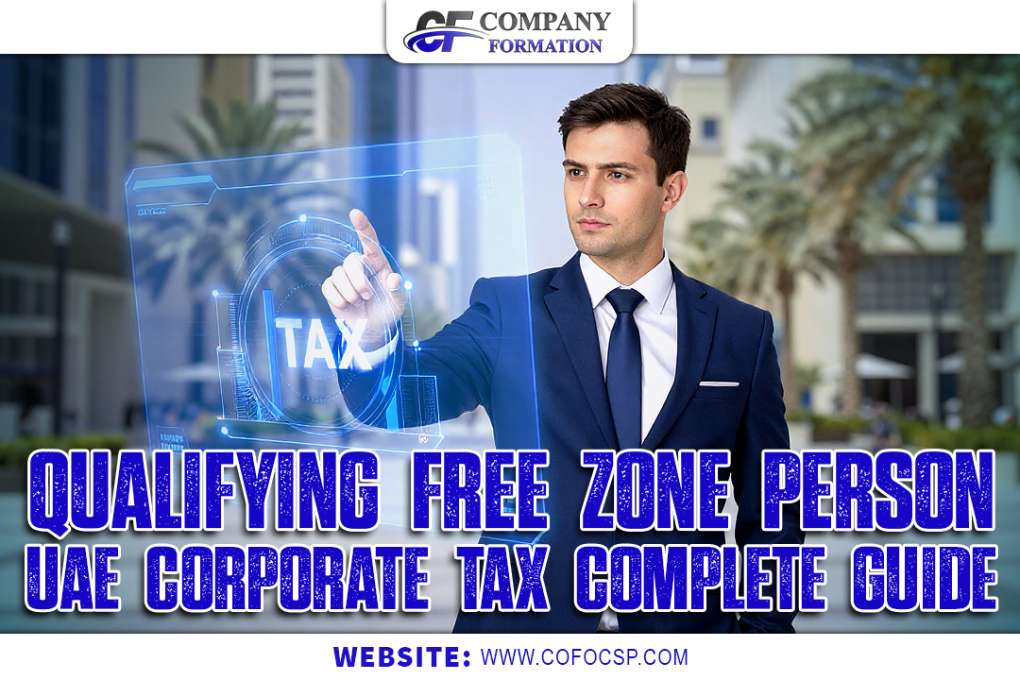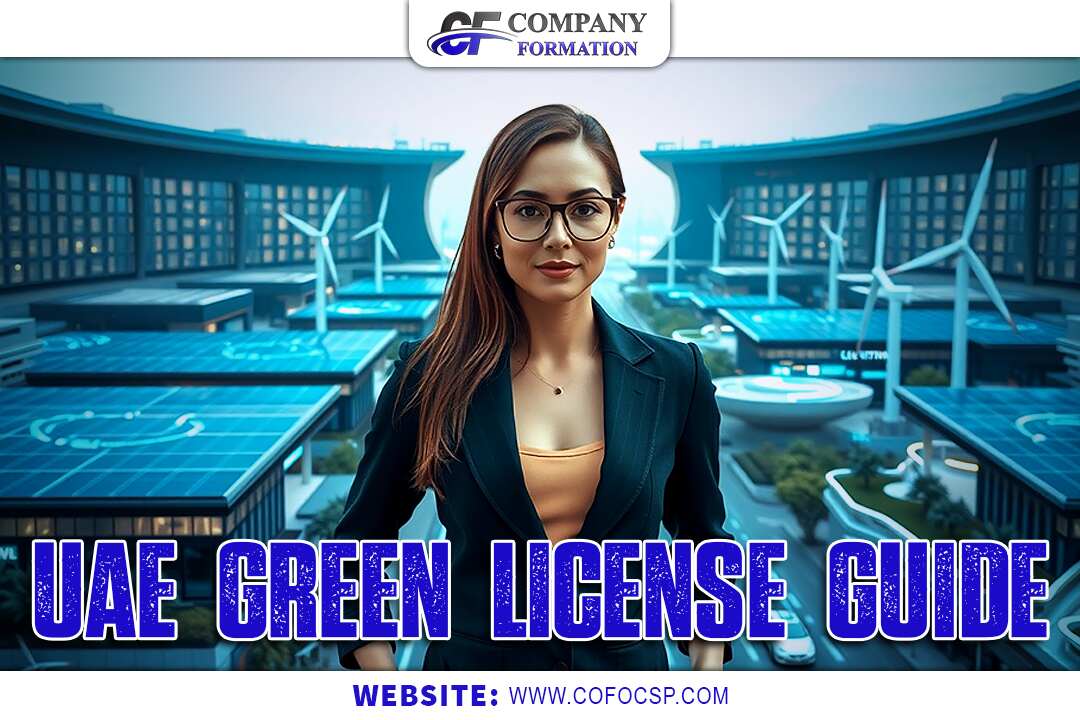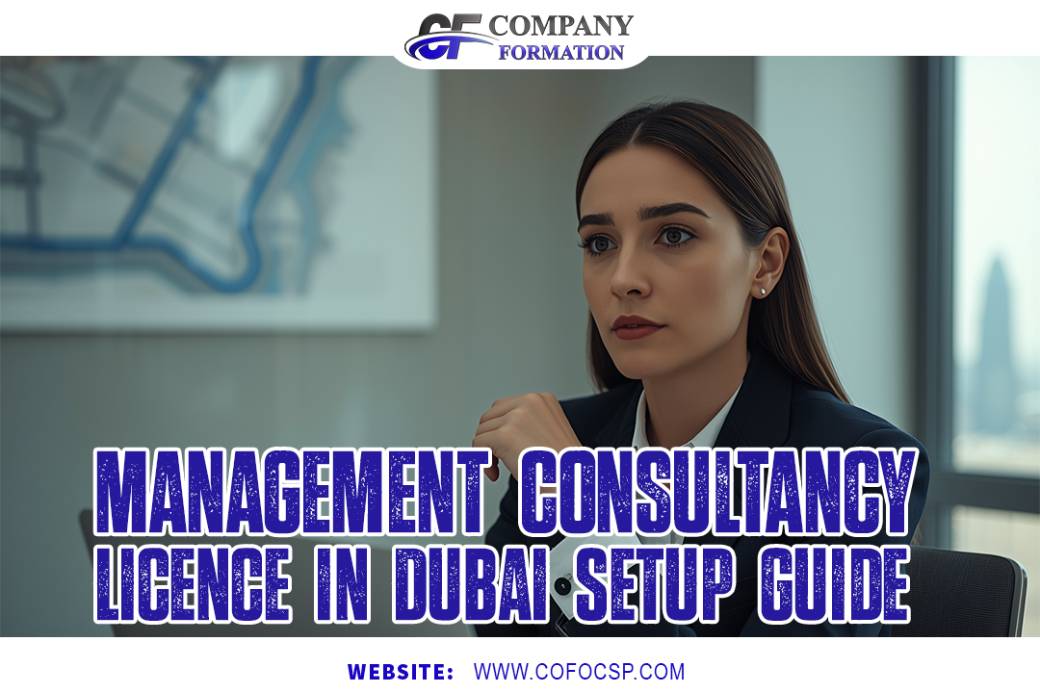Difference Between Freezone and Mainland Visa
Wondering about the difference between Mainland and Freezone visa in the UAE? A Mainland visa lets you operate freely across all Emirates, trade in the local market, and access diverse industries, with costs starting at AED 30,000. A Freezone visa offers 100% foreign ownership, tax exemptions, and simpler setup in zones like DMCC or JAFZA, starting at AED 27,000. In 2025, Mainland visas benefit from new foreign ownership rules, while Freezones remain ideal for international trade. This guide breaks down costs, processes, and benefits to help you decide what’s best for your UAE business setup or residency.
Starting a business or moving to the UAE is a big step, and choosing the right visa can make or break your plans. I remember helping a friend set up a small bakery in Dubai—she was torn between a Mainland visa for local customers and a Freezone visa for cost savings. The decision wasn’t easy, but understanding the options made it clear. Whether you’re an entrepreneur eyeing a business setup in Dubai, a freelancer seeking a Mainland and Freezone freelance visa, or an investor exploring the Golden Visa UAE, this guide will walk you through everything you need to know about Mainland vs Freezone visas in 2025. Let’s dive in with practical insights, real examples, and clear steps to simplify your journey.
Understanding Mainland Visas: Freedom to Grow Across the UAE
A Mainland visa is your ticket to operating a business or working anywhere in the UAE, from Dubai’s vibrant markets to Abu Dhabi’s corporate hubs. Issued by the Department of Economic Development (DED), it’s regulated by UAE federal laws and overseen by entities like the Ministry of Human Resources and Emiratisation (MOHRE) and General Directorate of Residency and Foreigners Affairs (GDRFA). It’s ideal for businesses targeting the UAE local market, like restaurants, retail, or consulting firms, and for employees seeking flexible work opportunities.
For example, a colleague opened a fitness studio in Dubai’s Jumeirah area with a Mainland visa, allowing her to serve local clients and later expand to Sharjah. Recent 2025 reforms have made Mainland setups even more appealing by allowing 100% foreign ownership in most sectors, reducing the need for a local service agent (LSA). This visa also grants UAE residency, access to bank account opening in Dubai, and the ability to sponsor family members.
Exploring Freezone Visas: A Hub for Global Business
A Freezone visa is tied to one of the UAE’s 45+ Freezones, like Dubai Multi Commodities Centre (DMCC), Jebel Ali Free Zone (JAFZA), or Ras Al Khaimah (RAK) Freezone. These special economic zones, governed by their own authorities, are designed for international trade and offer tax exemptions, 100% foreign ownership, and streamlined processes. They’re perfect for startups, tech firms, or exporters focusing on global markets.
I helped a friend launch a digital marketing agency in DMCC, and the tax-free environment and flexi-desk options saved her thousands. Freezone visas also provide residency privileges, including Emirates ID, healthcare access, and family sponsorship, but they limit direct trading in the local market unless you partner with a distributor.
Mainland vs Freezone Visa: Key Differences Explained
Let’s break down the difference between Mainland and Freezone visa.
Ownership and Control
- Mainland Visa: Until recently, some sectors required a local service agent (LSA) owning 51% of the business. In 2025, 100% foreign ownership is allowed in most industries, like retail or hospitality, giving investors full control. For instance, a tech consultant I know now fully owns his Mainland IT firm without an LSA.
- Freezone Visa: Always offers 100% foreign ownership, no LSA needed. This was a lifesaver for a startup founder in JAFZA who wanted to keep all profits without local partnerships.
Market Access and Business Scope
- Mainland Visa: Unrestricted access to the UAE local market, allowing businesses to trade across all Emirates and bid for government contracts. A logistics company I advised used this to secure contracts in Dubai and Abu Dhabi.
- Freezone Visa: Limited to Freezone activities and international trade. To sell in the UAE market, you need a local distributor, which added complexity for a Freezone e-commerce business I consulted.
Office and Visa Quota Requirements
- Mainland Visa: Requires a physical office space, with visa quotas tied to size (9 sq.m per employee). A larger office means more visas, ideal for growing firms like a construction company I worked with that hired 25 staff.
- Freezone Visa: Offers flexible options like flexi-desks or virtual offices, typically allowing 1-6 visas. A small consultancy I know used a virtual office in RAK Freezone to keep costs low.
Cost Breakdown for 2025
- Mainland Visa: Starts at AED 30,000, including trade license, office rent, and potential LSA fees (if applicable). Additional costs:
- Entry Permit: AED 1140
- Medical Test & Biometrics: AED 1165
- Health Insurance: AED 1100 (basic)
- Visa Fee: AED 552
- Emirates ID: AED 370
- Freezone Visa: Starts at AED 27,000, varying by Freezone (e.g., DMCC: AED 28,000-32,000; RAK: AED 20,000-25,000). Costs are lower due to no LSA and flexible office requirements.
Visa Validity and Renewal Process
- Mainland Visa: Employment visas are valid for 2 years, investor visas for 3 years, with 5 or 10-year options for high-value investors. Renewals via MOHRE or GDRFA cost AED 1000-2000.
- Freezone Visa: Valid for 2-10 years, depending on the Freezone. Renewals through Freezone authorities (e.g., AED 1500 in DMCC) are straightforward but zone-specific.
Application Steps Compared
The visa application process varies, as detailed in the sections below.
Why Choose a Mainland Visa? Benefits for Local and Global Reach
A Mainland visa is ideal if you want flexibility and access to the UAE’s diverse markets. Here’s why it’s a great choice:
- Full Market Access: Trade across all Emirates and bid for government contracts, like a retail chain I advised that expanded to Ajman.
- Broad Business Activities: Operate in multiple sectors, from education to construction, under one business license.
- Scalable Hiring: Sponsor employees based on office size, perfect for growing teams. A hospitality firm I know hired 30 staff with a large office.
- Family Sponsorship: Sponsor spouses (minimum salary AED 4000) or parents (AED 20,000), enhancing family life.
- Residency Benefits: Access healthcare, bank account opening in Dubai, and long-term rentals.
- 2025 Advantage: 100% foreign ownership in most sectors reduces costs and complexity.
Why Opt for a Freezone Visa? Advantages for Startups and Investors
A Freezone visa suits businesses focused on international trade or cost savings. Key benefits include:
- Full Ownership: Keep 100% foreign ownership without an LSA, as a tech startup I helped in DMCC did.
- Tax-Free Environment: Enjoy corporate tax exemptions and no customs duties, saving thousands annually.
- Flexible Offices: Choose flexi-desks, virtual offices, or shared spaces, ideal for startups like a graphic design firm I advised in RAK Freezone.
- Fast Setup: Visa processing takes 1-2 weeks, faster than Mainland’s 2-4 weeks.
- Global Focus: Perfect for exporters, with no restrictions on capital repatriation.
- Privacy Protection: Shareholder details stay confidential, a perk for a client in JAFZA.
How to Apply for a Mainland Visa: Step-by-Step Guide
Applying for a Mainland visa involves clear steps, regulated by the DED and . Here’s how I guided a friend through setting up a consultancy firm:
- Select Business Activity: Choose your business activities (e.g., consulting, retail) and legal structure (e.g., LLC).
- Obtain DED Approval: Get initial approval for your trade license from the Department of Economic Development.
- Choose a Trade Name: Follow UAE naming rules (e.g., no religious terms).
- Rent Office Space: Secure a physical office space to determine visa quotas.
- Sign Memorandum of Association: If needed, involve partners or a local service agent.
- Submit Documents: Provide passport, photos, and attested certificates (e.g., degree for professionals).
- Complete Medical Tests: Pass medical fitness tests (HIV test, chest X-ray) and biometrics.
- Apply for Emirates ID: Via the Federal Authority for Identity, Citizenship, Customs and Port Security.
- Finalize Visa Stamping: Through GDRFA for residency status.
Processing Time: 2-4 weeks, depending on approvals and office setup.
How to Apply for a Freezone Visa: Simplified Process
The Freezone visa process is faster, as I learned helping a colleague set up in JAFZA:
- Choose a Freezone: Pick a zone like DMCC, JAFZA, or RAK based on your business activities.
- Register via E-Channel: Use UAE e-channel services for seamless registration.
- Get Entry Permit: Obtain a 60-day temporary permit to enter the UAE.
- Complete Medical Tests: Pass medical fitness tests and biometrics.
- Apply for Emirates ID: Submit documents to the Freezone authority.
- Visa Stamping: Submit your passport for final approval.
- Collect Documents: Receive your Emirates ID and visa.
Processing Time: 1-2 weeks, thanks to streamlined Freezone processes.
Mainland vs Freezone Freelance Visa: Options for Independent Workers
Freelancers have unique needs, and the Mainland vs Freezone freelance visa choice depends on your work style.
- Mainland Freelance Visa:
- Pros: Work with clients across the UAE, including local market businesses. Ideal for freelancers like consultants or trainers serving diverse clients.
- Cons: Higher costs (e.g., office rent) and complex MOHRE compliance.
- Example: A freelance writer I know chose a Mainland visa to work with Dubai and Sharjah clients directly.
- Freezone Freelance Visa:
- Pros: Lower costs (e.g., flexi-desk options), tax exemptions, and simpler applications. Great for remote workers or international clients.
- Cons: Limited to Freezone activities unless partnered with a distributor.
- Example: A freelance coder in DMCC saved on setup but needed a distributor for local projects.
2025 Updates: New Rules and Real-World Examples
To give you the latest insights, here are key updates and examples addressing gaps in competitor content:
- 2025 Ownership Reforms: Most Mainland sectors now allow 100% foreign ownership, eliminating LSA requirements for many businesses. This wasn’t fully detailed by competitors.
- Freezone Cost Variations: DMCC visa fees range from AED 28,000-32,000, JAFZA from AED 25,000-30,000, and RAK Freezone from AED 20,000-25,000, offering budget options.
- Case Study: A Dubai-based fashion startup chose a Freezone visa in DMCC for tax exemptions but switched to a Mainland visa in 2025 to sell in local malls, highlighting market access trade-offs.
- Visa Renewal Details: Mainland renewals cost AED 1000-2000 via MOHRE, while Freezone renewals (e.g., AED 1500 in JAFZA) are zone-specific.
- Employee Transfers: Transferring from a Freezone to a Mainland job requires visa cancellation and reapplication, a process competitors undercovered.
FAQs: Your Top Questions Answered
Here are answers:
Q1: Can a Freezone company trade in the UAE local market?
No, Freezone companies need a local distributor to trade locally, unlike Mainland companies with full market access.
Q2: Is a physical office required for Freezone companies?
No, Freezones offer flexi-desks or virtual offices, while Mainland requires a physical office space.
Q3: How are visa quotas determined?
Mainland quotas depend on office size (9 sq.m per employee), while Freezone quotas are tied to office type (1-6 visas).
Q4: What are the tax implications for Mainland companies?
Mainland companies may face corporate tax (since 2023) and VAT, while Freezones are tax-free.
Q5: Can Freezone companies bid for government contracts?
Freezone companies have limited access, while Mainland companies can bid freely for government contracts.
Q6: What is the difference between a Freezone and Mainland visa in the UAE?
A Freezone visa offers 100% foreign ownership, tax exemptions, and is issued by Freezone authorities like DMCC, but limits local market trading. A Mainland visa, regulated by the DED, allows unrestricted UAE market access and diverse business activities.
Conclusion: Making the Right Choice for Your UAE Journey
Deciding between a Mainland visa and a Freezone visa comes down to your vision. If you’re building a business for the UAE local market, like a café or consultancy, a Mainland visa offers unmatched flexibility and access. If you’re focused on international trade or want a cost-effective setup, a Freezone visa in zones like DMCC or RAK is ideal. My friend’s bakery thrived with a Mainland visa, while another’s tech startup soared in a Freezone. Think about your business activities, budget, and growth plans. For expert help, UAE PRO services can guide your business registration in Dubai or visa process. Ready to start? Your UAE adventure awaits!
